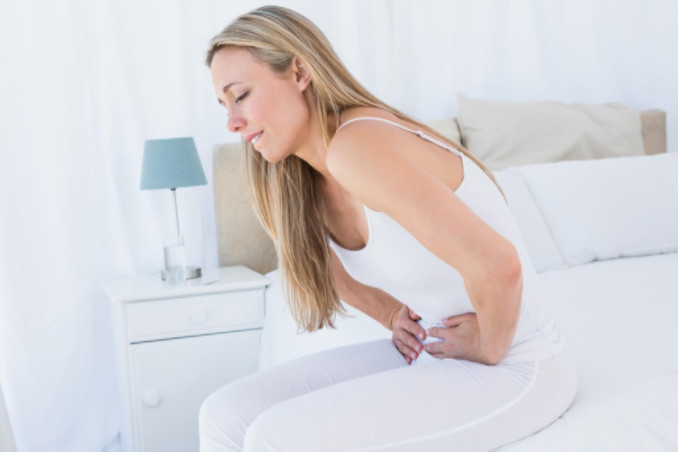
Uterine fibroids, which are noncancerous growths in the uterus, are extremely common in women. One study estimates that 70% of white women and 80% of black women will develop uterine fibroids at some point in their lives. Luckily, only about 30% of those women experience symptoms.
Unfortunately, those with symptomatic uterine fibroids may experience severe abdominal pain and heavy bleeding, which understandably results in a high number of emergency room visits each year.
In fact, in a study done by the University of Michigan Medicine, researchers found that out of 487 million ER visits studied between 2006 and 2017, tens of thousands of women were seen for fibroids. Out of that large number, only about 10% were admitted to the hospital.
What are fibroids?
Fibroids are noncancerous growths or tumors in the uterus. Most women develop them during their childbearing years. Fibroids can be small enough that women don’t even know they’re there or so large that they cause a lot of pain and menstrual bleeding.
Doctors and scientists don’t know why or what specifically causes fibroids to develop, but they do know that your chances of getting fibroids are higher if you’re overweight, start puberty at a younger age or have a family history of fibroids. Hormones can also be a factor.
What are the symptoms of uterine fibroids?
Symptoms of uterine fibroids can vary but may include the following:
- Heavy or painful menstrual bleeding
- A feeling of fullness or heaviness
- Enlargement of the lower abdomen
- Constipation
- Frequent urination or trouble emptying the bladder
- Backache or leg pain
- Painful intercourse
How do you treat fibroids?
As the University of Michigan Medicine study found, 90% of women who went to the ER didn’t necessarily need to be there. Fibroids are best treated by your gynecologist, who knows more about your health history and individual needs.
Fibroids also tend to be chronic (yes, they can come back), so that’s also why it’s best to seek continued care with your women’s health doctor.
If the fibroids are not causing any symptoms or the symptoms are minimal, your doctor may decide to watch and wait to see if the fibroids grow or start to cause more severe symptoms.
If the fibroids are causing symptoms, there are several options.
Medication
- Low-dose birth control pills or IUD. These are used to help control heavy bleeding, but they will not shrink the fibroid.
- GnRH (gonadotropin-releasing hormone agonist). This is used to shrink fibroids but can only be used for a short time because it causes bone loss. It is often used right before surgery.
- Tranexamic acid (Lysteda). This is a nonhormonal medication used to control heavy bleeding.
Noninvasive or minimally invasive procedures
There are many noninvasive or minimally invasive procedures used to treat uterine fibroids. These are just a few of the more common ones:
- Uterine artery embolization. In this procedure, tiny pieces of plastic or gel particles are inserted into the blood vessels that supply the fibroid with blood, causing the fibroid to shrink and die.
- Myolysis. During this procedure, a doctor inserts a needle into the fibroid, destroying the fibroid through electric current or by freezing it.
- Endometrial ablation. For this procedure, a doctor uses a needle with a laser or electric current to destroy the lining of the uterus.
Surgery
- Myomectomy. This surgery removes very large or multiple uterine fibroids. The uterus is not removed, so patients may still be able to have children, making it the best option for women who are still planning to have children in the future.
- Hysterectomy. This surgery removes the uterus completely. This can be a good option if you’re past childbearing years and struggle with severe bleeding and pain. Since fibroids can come back after being removed, this procedure would eliminate that possibility altogether.
Regular gynecological visits can help spot and treat fibroids
At All About Women, we can’t stress enough the importance of regular well-woman checkups. If you’re seeing your gynecologist on a yearly basis, they’ll be able to identify changes in your health and may be able to catch fibroids before you realize you have them.
If you’re experiencing abdominal pain or heavy menstrual cycles, talk to your doctor about your symptoms so you can discuss possible causes and treatment options.
To schedule an appointment with one of our trusted doctors, contact All About Women in Gainesville or Lake City, Florida, today.


